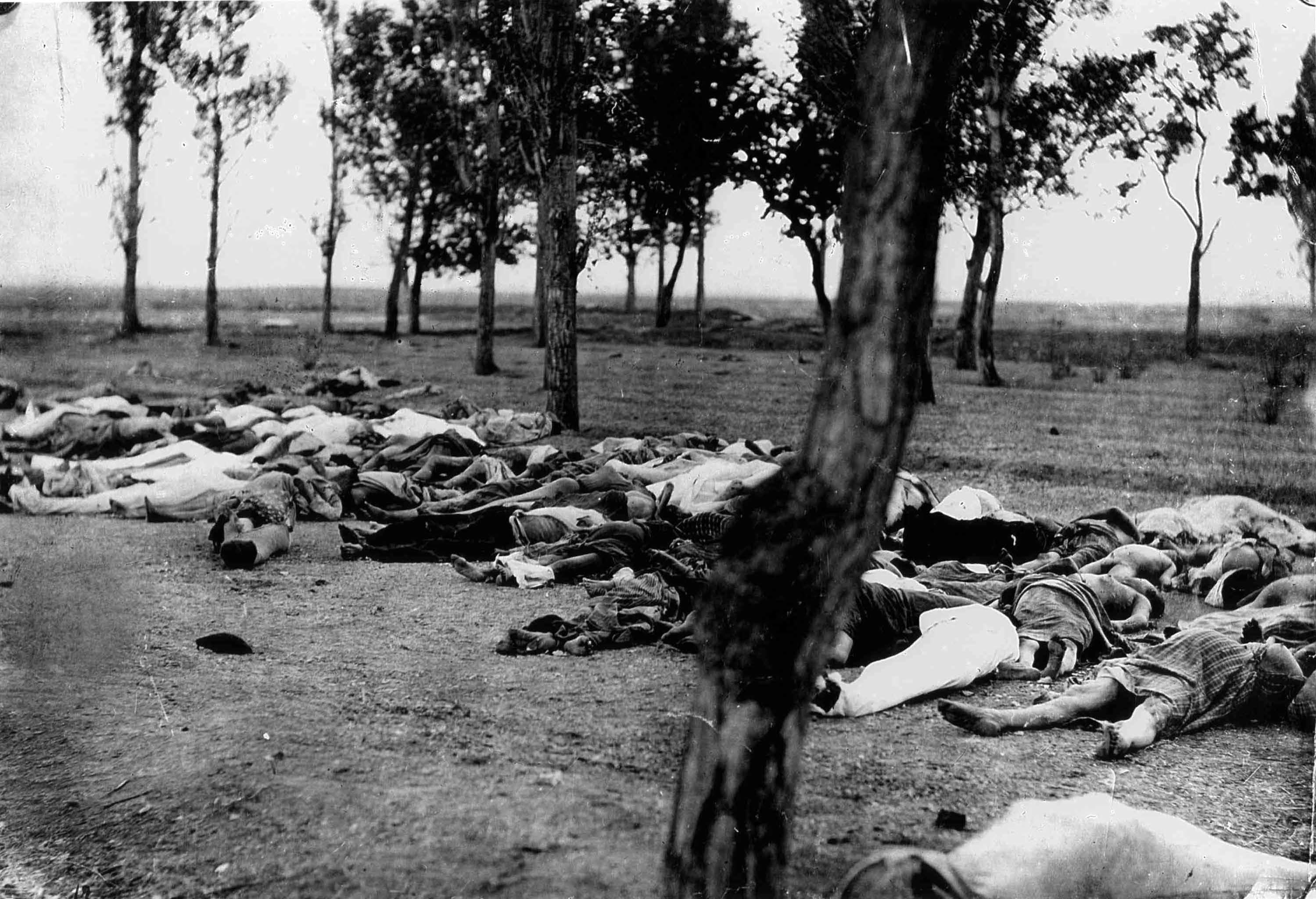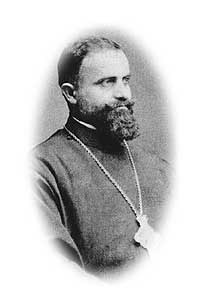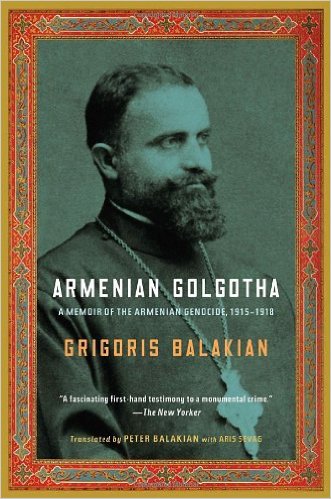A Priest’s Witness to Genocide;
Ottoman Officer With Bloody Hands Tells the Story.
Special to The Great War Project
(8-10 September) The massacre of Turkey’s Armenian population continues relentlessly, beginning in February 1915, and grinding on through the terrible spring and summer of that year a century ago.
Several first-person accounts of the carnage surface.
One is the diary of an Armenian priest, Grigoris Balakian. He is among the 240 leaders of the Armenian community who are arrested on the night of April 24th 1915. The Ottoman leaders fear these notables will make common cause with Russia, should the Russians seize the Ottoman capital, Constantinople.
The Ottoman solution: Round up the Armenians and deport them all. Or kill them. “For Armenians,” writes historian Eugene Rogan, “the arrest of the political and intellectual leadership in Istanbul [then Constantinople] on 24th April initiated the systematic destruction of the Armenian communities of Anatolia [today’s Turkey].”
By June the Ottoman government issues orders to deport and kill all Armenians, immediately, “without exception,”
…according to Rogan. Writes Father Balakian, “We were living through days of such unheard-of horror, it was impossible for the mind to fully comprehend.”
Balakian does all he can to survive, to bear witness for future generations. He does this by bribery and subterfuge. At one stage in the death march into the Syrian desert, Balakian “negotiated a massive bribe of 1500 gold pieces with local officials.” It bought Balakian’s small group “a seven-month reprieve during the worst months of the massacres.”
Nevertheless, Father Balakian marches along the roads where the Armenians were killed or left for dead.
Still, Balakian engages some of his captors, Ottoman gendarmes, in conversation. They answer all of the priest’s questions because they assume all will die, and thus be unable to inform others of the horrors the Armenians face.
“One of the most forthcoming,” reports Rogan, was a Captain Shukri, “who by his own admission had overseen the killing of 42,000 Armenians.”
“Where have all these human bones along this road come from?” Balakian asks the Turkish Captain.
“These are the bones of Armenians who were killed in August and September,” he answers. “The order had come from Constantinople. Even though the ministry of the interior had huge ditches dug for the corpses, the winter floods washed the dirt away and now the bones are everywhere, as you see.”
Father Balakian probes further. “Upon whose orders were the massacres of Armenians committed?”
“The ministry of the interior in Constantinople,” says Captain Shukri.
Writes historian Rogan, “Through conversations with Turkish officers, Balakian learned every aspect of the Armenian tragedy from the government’s perspective. In his exchanges with survivors encountered along the way, the priest also deepened his knowledge of the Armenian experience of the genocide.”
Balakian learns how to survive the death march through his apparently innocent conversation with his captors. But he is aware that death can come at any moment.
“During the length of their forced march,” reports Rogan, “the priest and his fellows confronted the magnitude of the horror that had befallen the Ottoman Armenian community; the bodies of the dead, the pleas of starving survivors, the shame of those who had converted to Islam to save their lives. He recorded the details in his diary as the caravan made its way across Anatolia to Cilicia [on the Mediterranean coast of Turkey].”
Father Balakian tells the story in his book, Armenian Golgotha. Historian Rogan adds, “The accounts of other survivors of the Armenian genocide confirmed much of what he wrote.”
“The bitter irony is the annihilation of the Armenians and other Christian communities in no way improved the security of the Ottoman Empire,” concludes Rogan.
“The deportations actually undermined the Ottoman war effort.”



